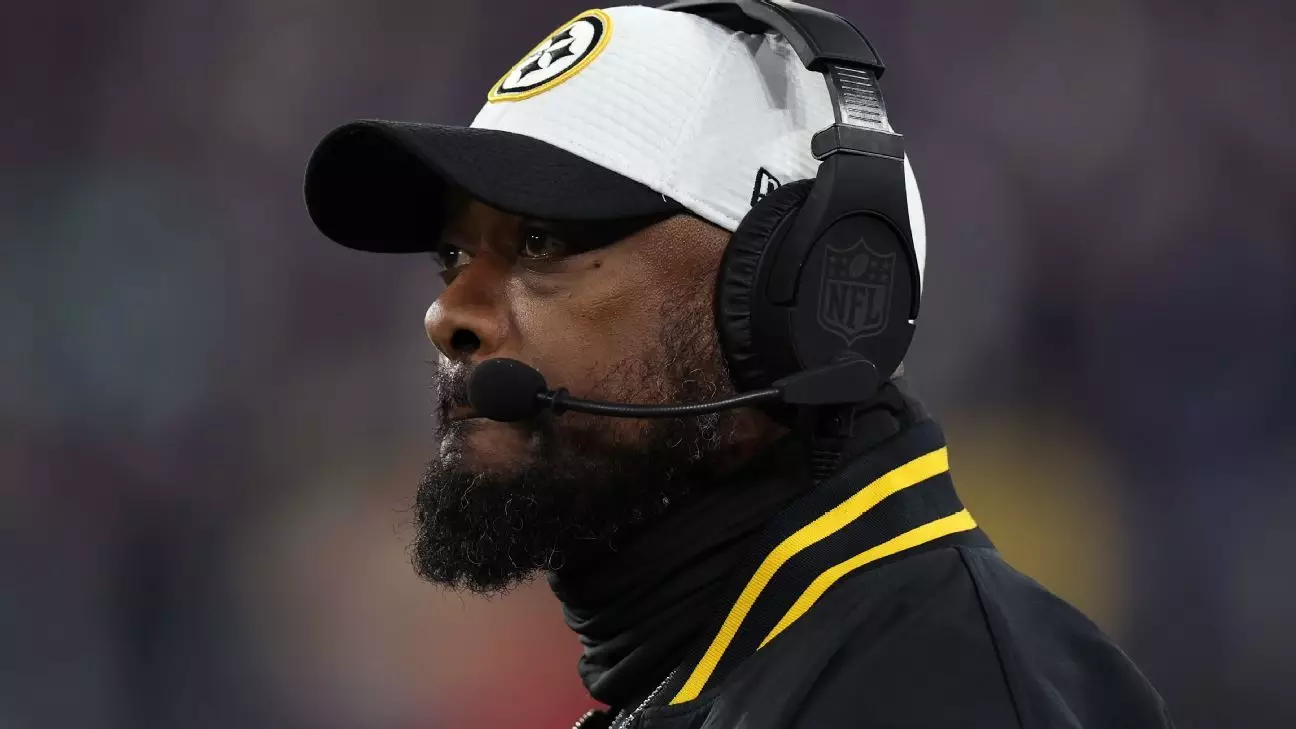The world of professional sports, particularly in the NFL, is dominated by constant speculation, rumors, and strategic maneuvers aimed at optimizing team performance and leadership. The recent interactions between the Chicago Bears and Pittsburgh Steelers regarding coach Mike Tomlin highlight some important lessons related to leadership stability, franchise loyalty, and the intricate nature of coaching negotiations.
The Chicago Bears approached the Steelers with the intent to explore the potential availability of Mike Tomlin, one of the league’s most respected coaches. However, this inquiry was swiftly rejected, underscoring the Steelers’ commitment to retaining their head coach despite recent playoff disappointments. Tomlin’s long tenure in Pittsburgh—spanning nearly two decades—speaks volumes about the organization’s stability and its confidence in his capabilities as a leader. This rebuff not only showcased the strength of Tomlin’s position within the Steelers but also revealed the challenges faced by teams like the Bears as they seek to rebuild and improve.
The Bears’ outreach reflects a willingness to explore all avenues available in their search for a new head coach—an essential trait for any franchise aspiring to ascend the competitive ladder. Despite being informed that Tomlin has a no-trade clause, the Bears did not hesitate to probe the waters, demonstrating an awareness of Tomlin’s prowess and the impact he could have on their struggling franchise.
Mike Tomlin’s response to inquiries about his availability sends a clear message about his dedication to the Steelers. His statement, “Save your time,” illustrates a resolute commitment to his current role and lends insight into his character as a coach. Tomlin embodies resilience and embraces the pressures that come with high-stakes coaching. Despite facing criticism from fans and the media following their fifth consecutive playoff exit, he maintains his focus on improvement and accountability. “I own it,” he stated, emphasizing the critical role self-awareness plays in effective leadership.
Interestingly, the lack of any losing seasons in Tomlin’s tenure—an impressive feat—shows his coaching acumen. With a career record that places him among the franchise’s legends, including Chuck Noll, this further cements his identity as a significant asset to the Steelers. The passionate discourse surrounding his performance serves only to enhance the narrative of a leader who thrives under scrutiny, continually seeking to push his team forward.
While the Bears’ inquiry into Tomlin may have been a long shot, it is indicative of a broader and more comprehensive coaching strategy they are employing. The franchise is not merely looking at big names; instead, they are wide-ranging in their search, interviewing a myriad of candidates from various backgrounds. From former head coaches to coordinators with innovative approaches, Chicago is casting a wide net in an effort to find the right fit for their organization.
This approach is commendable, as it highlights the need for a holistic view of team dynamics and the qualifications necessary in crafting a successful coaching staff. The diverse array of candidates suggests that the Bears are looking to address multiple facets of their franchise, from offensive creativity to defensive fortitude, demonstrating a comprehensive and strategic search process.
In sum, the recent exchange between the Chicago Bears and the Pittsburgh Steelers exemplifies the intricacies of leadership in the NFL. While teams may explore potential shifts in their coaching staff, the decision to retain a well-respected and successful coach like Mike Tomlin speaks volumes about values such as loyalty, stability, and the importance of cultivating a winning culture.
Moreover, the Bears’ journey—to diligently seek out the best leadership for their franchise—underscores the essence of perseverance in professional sports. As intriguing as the inquiry into Tomlin was, it simultaneously serves as a reminder that successful franchises prioritize leadership continuity and resilience over transient, short-term fixes. The quest for the right coach will continue, but stability within organizations often leads to long-term success, a lesson that bears significance for teams across the league.

Leave a Reply